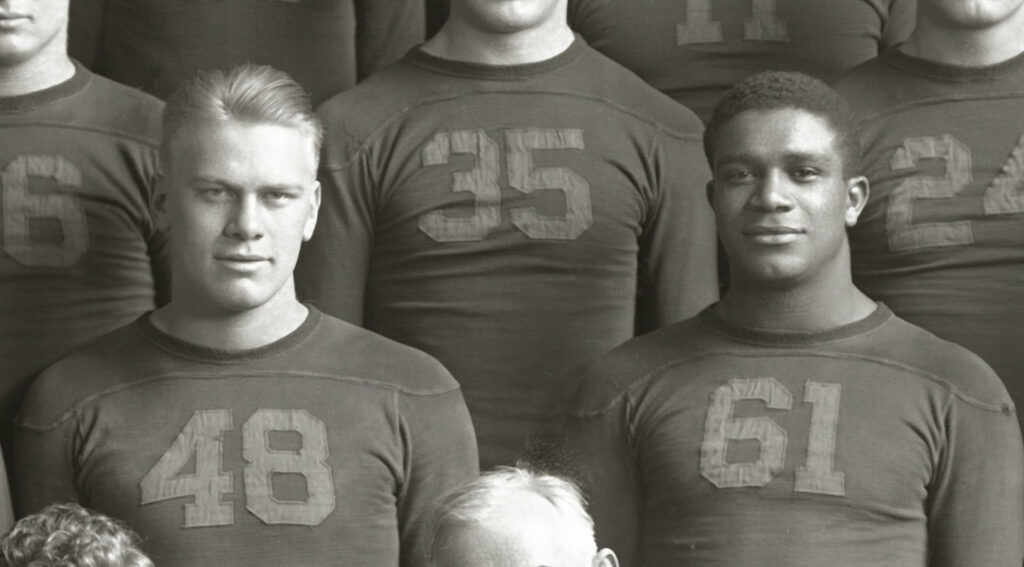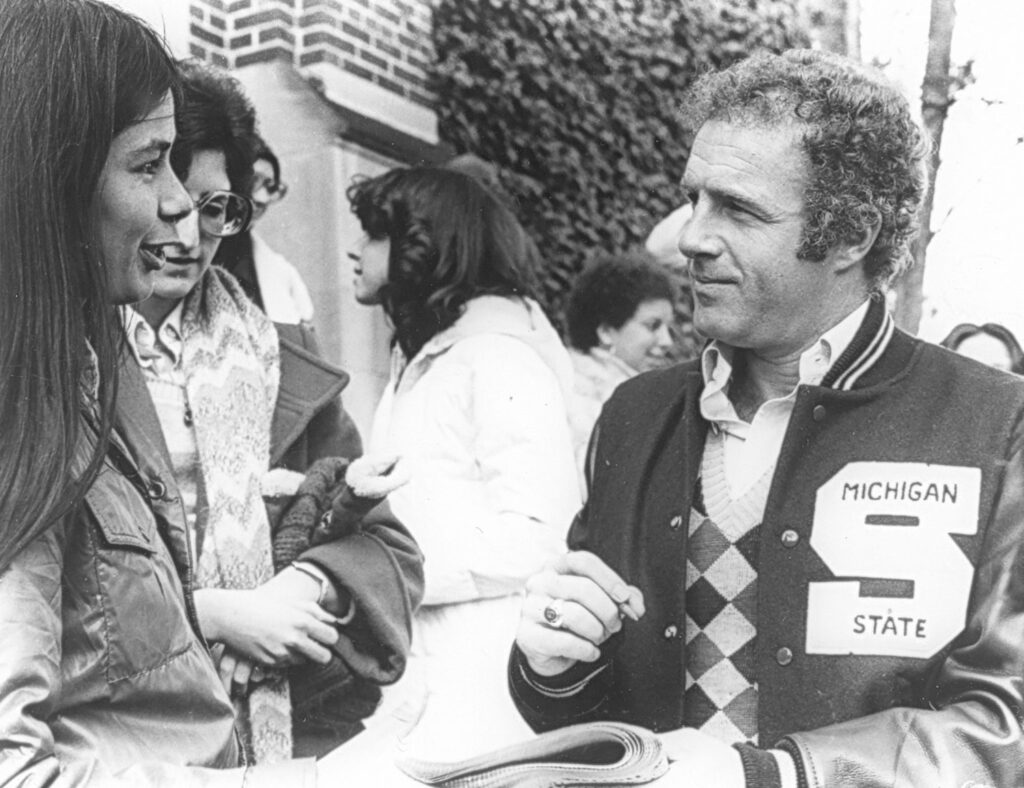A football game played at the University of Michigan 90 years ago continues to make waves.
Michigan defeated Georgia Tech on Oct. 20, 1934, in front of a small crowd in cold, wet, miserable conditions. The final score was 9-2, and the game was noteworthy not because of the dozens of men who played, but because of the one man who didn’t.
Willis Ward was Michigan’s best player, a senior end from Detroit, who was tall and fast. He was also black, and in Georgia Tech’s mind, that was a problem. Teams from the South back then refused to play against any team that had a black player, so when the Yellow Jackets came to Ann Arbor for the game, they demanded Ward be benched.
Michigan coach Harry Kipke didn’t want to give in to the demand, but athletic director Fielding H. Yost did. Yost was a legendary figure on Michigan’s campus. As football coach, he had led the team to six national championships in 25 years, before retiring to become AD.
Yost was a Southerner himself—a West Virginia native whose father was a Confederate soldier. When Georgia Tech demanded that Ward be benched, Yost had no problem agreeing to it. It was his call to make.
The Willis Ward incident was one of the biggest sports stories in the country in 1934, making front-page news coast to coast. Most people on the U-M campus were outraged and embarrassed by it.
Among the most furious people at Michigan were Ward’s teammates, particularly his best friend on the team, a lineman from Grand Rapids named Gerald R. Ford. Ford wanted to quit the team over it, agreeing to play only after Ward personally asked him to.
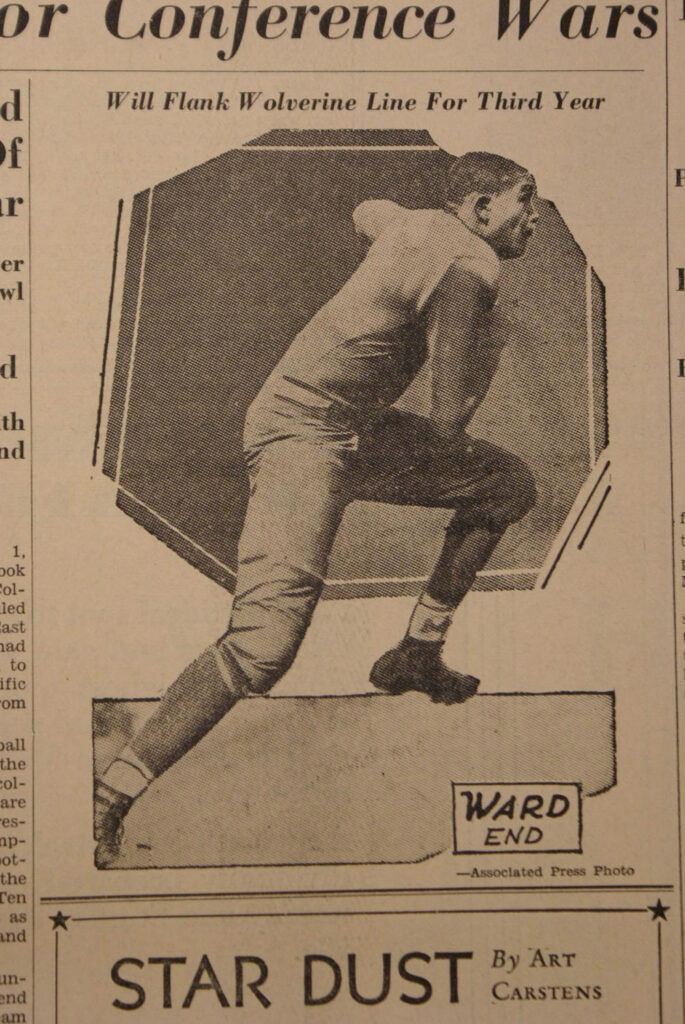
What happened to his friend in 1934 had a profound impact on Ford later in life when he became a Republican congressman and eventually U.S. president. When Ford voted for the Civil Rights Act in 1964 and the Voting Right Act in 1965, Ward was front and center in his mind.
The victory over Georgia Tech was Michigan’s only win of the season in 1934. The Wolverines were coming off back-to-back national championships in 1932 and 1933, but the situation with Ward and Georgia Tech sucked the soul out of that team. Their morale was destroyed, and they finished 1-7, the worst record in school history.
Although the Willis Ward incident was a huge story in 1934, it had become lost to history over the decades. Ford’s own children didn’t hear about it until their dad had been out of the White House for almost 20 years.
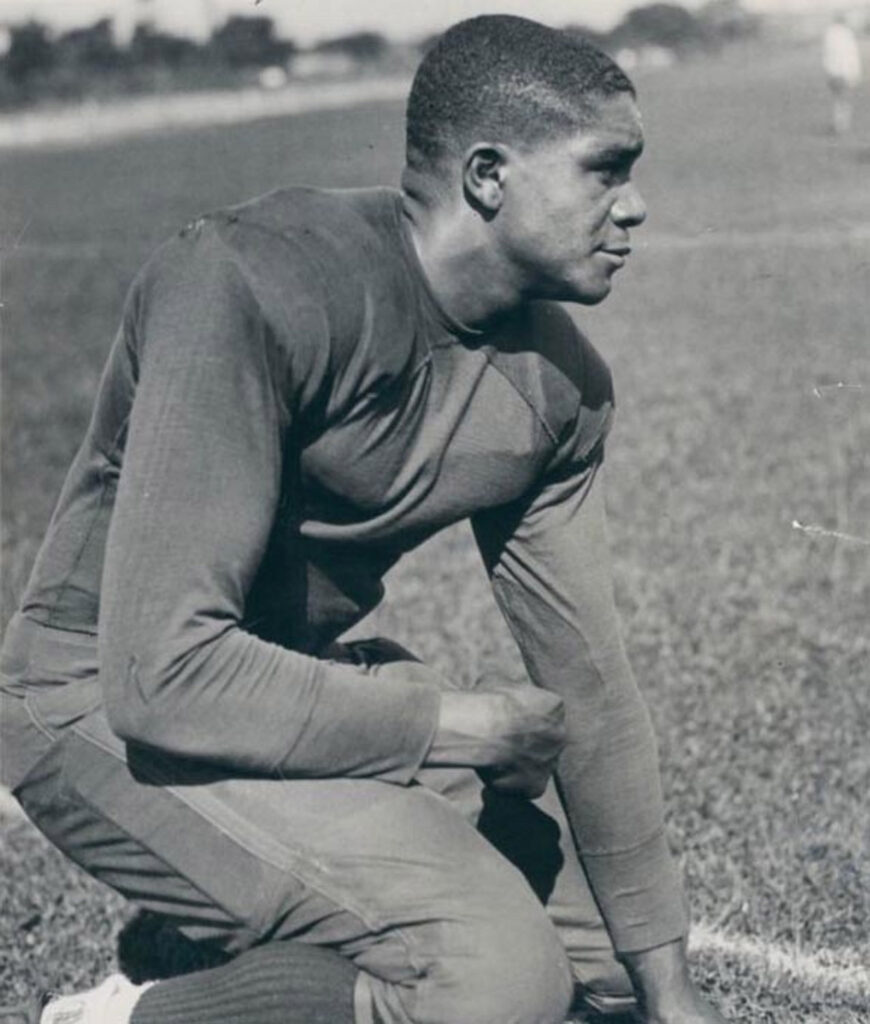
The story was brought back into the public consciousness in 2011 when my filmmaking partner Brian Kruger and I made a documentary called, “Black and Blue: The Story of Gerald Ford, Willis Ward and the 1934 Michigan-Georgia Tech Football Game.” The film aired on TV and has had numerous public showings across the country.
For most people, including most diehard Michigan football fans, it was their first time hearing the Willis Ward story, and it gave them a new frame of reference for historical figures they thought they knew, particularly Fielding H. Yost and Gerald Ford.
Everyone knows Ford played football at Michigan, but they didn’t know he was part of such an extraordinary story there. And they knew Yost was a great coach, but they had no idea he had once agreed to an opponent’s racist demand.
The documentary also introduced them to someone they’d never heard of before. It’s not a stretch to say that before “Black and Blue” came out, most Michigan fans had never heard of Willis Ward.
More than a decade after the documentary came out—and 90 years after the game was played—it’s safe to say that Ward’s legacy is now assured on the campus he once called home. And in ways both good and not-so-good, his story has prompted a conversation that continues to this day.
First the good parts. When “Black and Blue” came out in 2011, a second grader from Brighton named Genna Urbain watched it and was outraged when the documentary pointed out that there was nothing on U-M’s campus—or anywhere in Michigan—honoring Willis Ward.
“That’s not right,” she told her mom, who as it happens was a Lansing lobbyist.
“Well, if that’s how you feel, then you should do something about it,” her mom Alicia Urbain said.
OK, Genna said. I will.
Her first stop was Lansing, where Alicia took her around to a bunch of senators so that Genna could lobby them on the idea that there should be a Willis Ward Day.
The second grader convinced Sen. Tonya Schuitmaker, R-Kalamazoo, to sponsor the legislation, and the Senate voted unanimously that Oct. 20, 2012, the 78th anniversary of the game, be declared Willis Ward Day in Michigan.
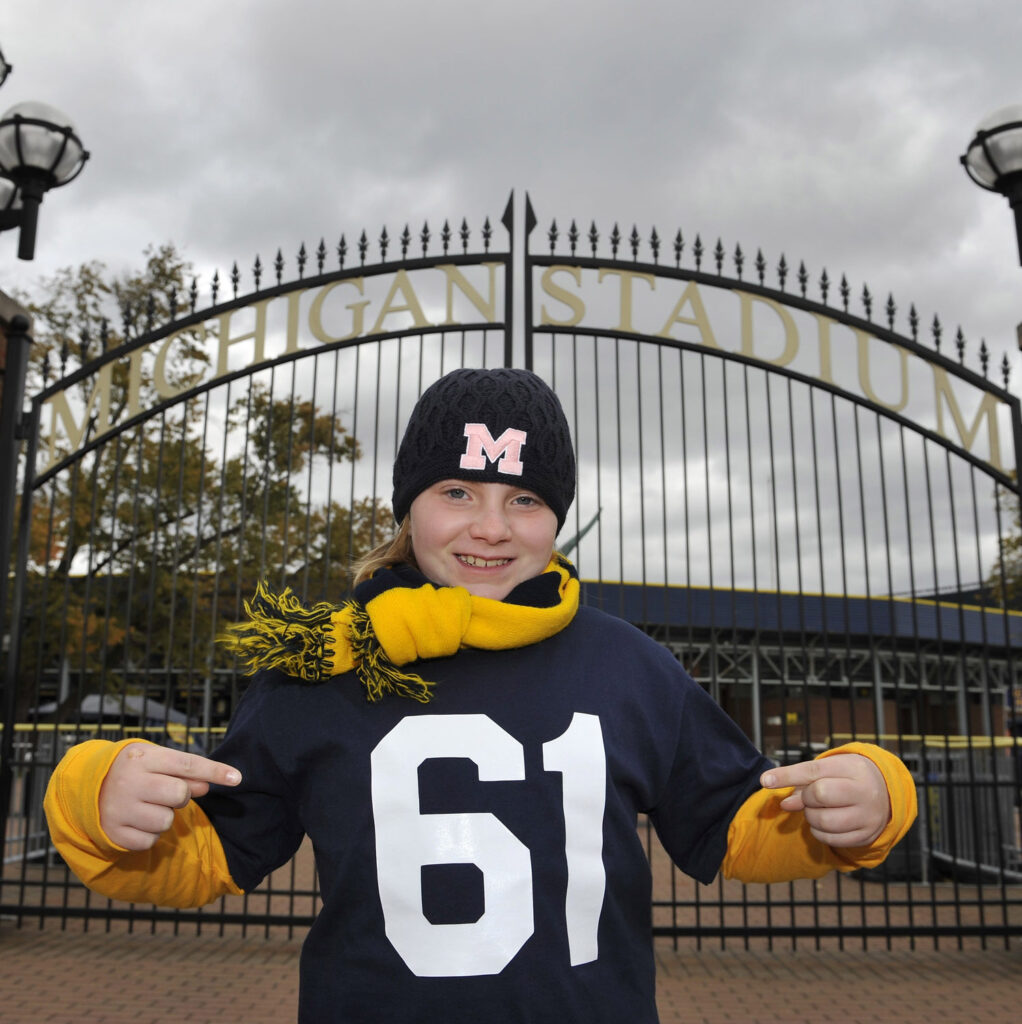
Genna’s next stop was the U-M Board of Regents, where she spoke at a meeting and asked them to not only honor Ward at a Michigan football game (they did), but also to name something on campus in his honor.
It took a few years, but in May 2015, they dedicated the Willis Ward Lounge at the Michigan Union, one of the most storied buildings on campus. Ward himself worked there in the 1930s as a dishwasher.
Genna cut the ribbon to dedicate the lounge surrounded by members of Willis Ward’s family. They were all thrilled to see that his legacy has a permanent home on campus now.
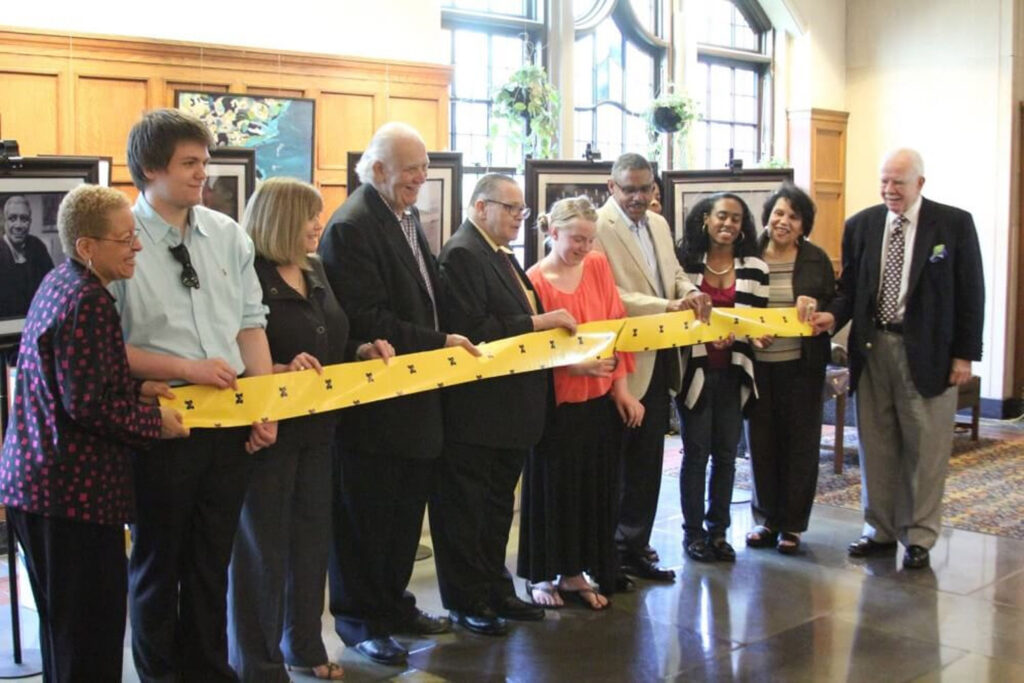
Genna grew up and decided, of course, to attend U-M. She’s now a junior engineering major and studies regularly in the Willis Ward Lounge.
In the football program, Willis Ward’s legacy lives on in a very subtle way. In 2016, when the U-M athletic department was changing its apparel from Adidas to Nike, athletic director Jim Hackett decided it was the perfect opportunity to pay special tribute to both Willis Ward and Gerald Ford.
Hackett, a former Michigan football player himself, told Nike that he wanted the number “4” on Michigan’s new football jerseys to be the same serif font that Gerald Ford wore on his “48” jersey. It’s a unique-looking “4” that you don’t see on many football jerseys, with the two lines coming off the number to the right.
In Hackett’s mind, in the famous team photo from 1934 in which Ford and Ward are standing next to each other, the lines on Ford’s “4” are pointing to Ward as a way of saying, “You’re my teammate; I’ve got your back.”
The events of 1934 were not a defining moment for Willis Ward. It didn’t set him up to be a poor-me, pity-me victim. Quite the opposite.
He was a brilliant student, and when he graduated in 1935, he was recruited by Henry Ford himself to work for the Ford Motor Co. as a liaison to the company’s black workers. In his early 20s, he was one of the highest-ranking black corporate executives in the country.
He served his country in World War II as an Army lieutenant and when the war ended, he went to law school. He became a prosecutor, was named chairman of the Michigan Public Service Commission and later became the first black probate judge in Wayne County history.
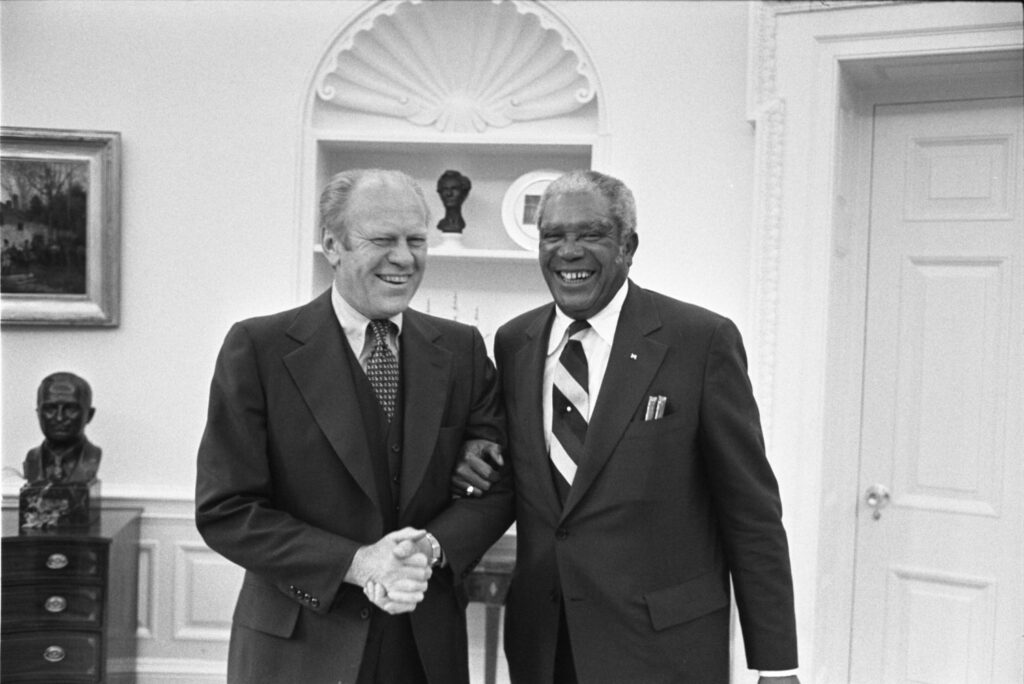
He also got into politics in 1956, running for Congress in Michigan’s 13th District as a Republican, facing incumbent Democratic Rep. Charles Diggs.
Ward was a very proud and very prominent Michigan Republican in the 1950s, and a big supporter of President Dwight D. Eisenhower. He lost the election to Diggs and spent a lot of time in the 1950s giving speeches to young people in Detroit, all of which carried the same message:
“Don’t let your circumstances hold you back or define you. Don’t count on other people or worse, the government, to bail you out. Make your own way in life. Don’t let anything hold you back.”
Ward died on Dec. 30, 1983, at age 71. The story about his death in the Detroit Free Press didn’t even mention the Georgia Tech incident.
Which brings us to the most recent controversy.
In early 2021, a group at U-M called, “The President’s Advisory Committee on University History,” met in secrecy to decide if Fielding H. Yost’s name should be taken off Yost Field House, the historic building on U-M’s campus that is home to the Michigan hockey team.
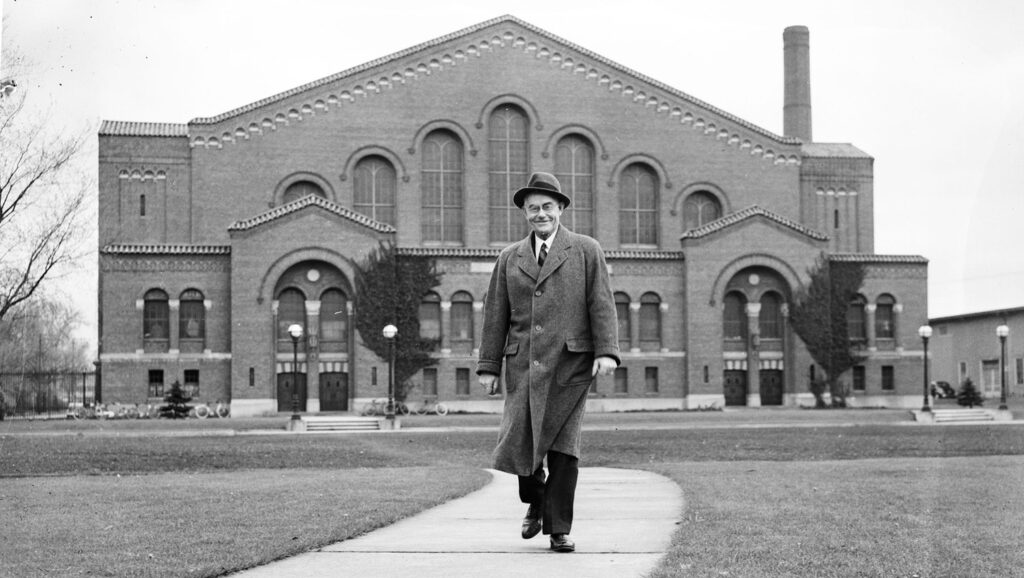
In the wake of George Floyd’s death in May 2020, when cities and schools across the country began tearing down statues and taking names off buildings if the namesake was deemed to historically be a bad guy, U-M started fielding complaints about Yost.
“Hey, look at what he did to Willis Ward in 1934,” they said. “Take his name off the building!”
The committee, made up of eight historians, began considering the matter in early 2021. They didn’t seek any outside opinions. They didn’t ask Willis Ward’s family what they thought.
On May 24, 2021, they issued their recommendation, and it was unanimous: Take Yost’s name off the building. They based almost the entire recommendation on Yost’s handling of the Willis Ward affair.
“While we acknowledge that Yost had both successes and failures in his career, our historical analysis suggests to us that the benching of Ward was not an aberration but rather epitomized a long series of actions that worked against the integration of sports on campus,” they said.
This was not the first time the President’s Advisory Committee on University History had recommended taking a name off a building. In 2018, upon the committee’s recommendation, U-M removed the name of Clarence Cook Little from the C.C. Little Building on Central Campus and took Alexander Winchell’s name off a portion of the West Quad dorm. Little was a former university president and avowed eugenicist, while Winchell was a professor at U-M in the 19th century, who held views on evolution that were found to be racist.
In 2018, the recommendations were acted upon immediately. But in 2021, what happened with Fielding H. Yost was… nothing. More than three years after the recommendation was made, his name is still on the building.
It’s hard to tell what Ward himself would have to say about all that, but he’d no doubt have an opinion. He had an opinion about most everything.
Michigan is on the road this Saturday against Illinois, one day shy of the 90th anniversary of the Georgia Tech game, and all the Wolverines sporting a “4” on their jersey will be paying homage to Willis Ward. That same day, some students will no doubt be watching the game on their phones while studying in the Willis Ward Lounge.
Michigan’s hockey team has a game that night too. At Yost Ice Arena.
Buddy Moorehouse teaches documentary filmmaking at Hillsdale College.
